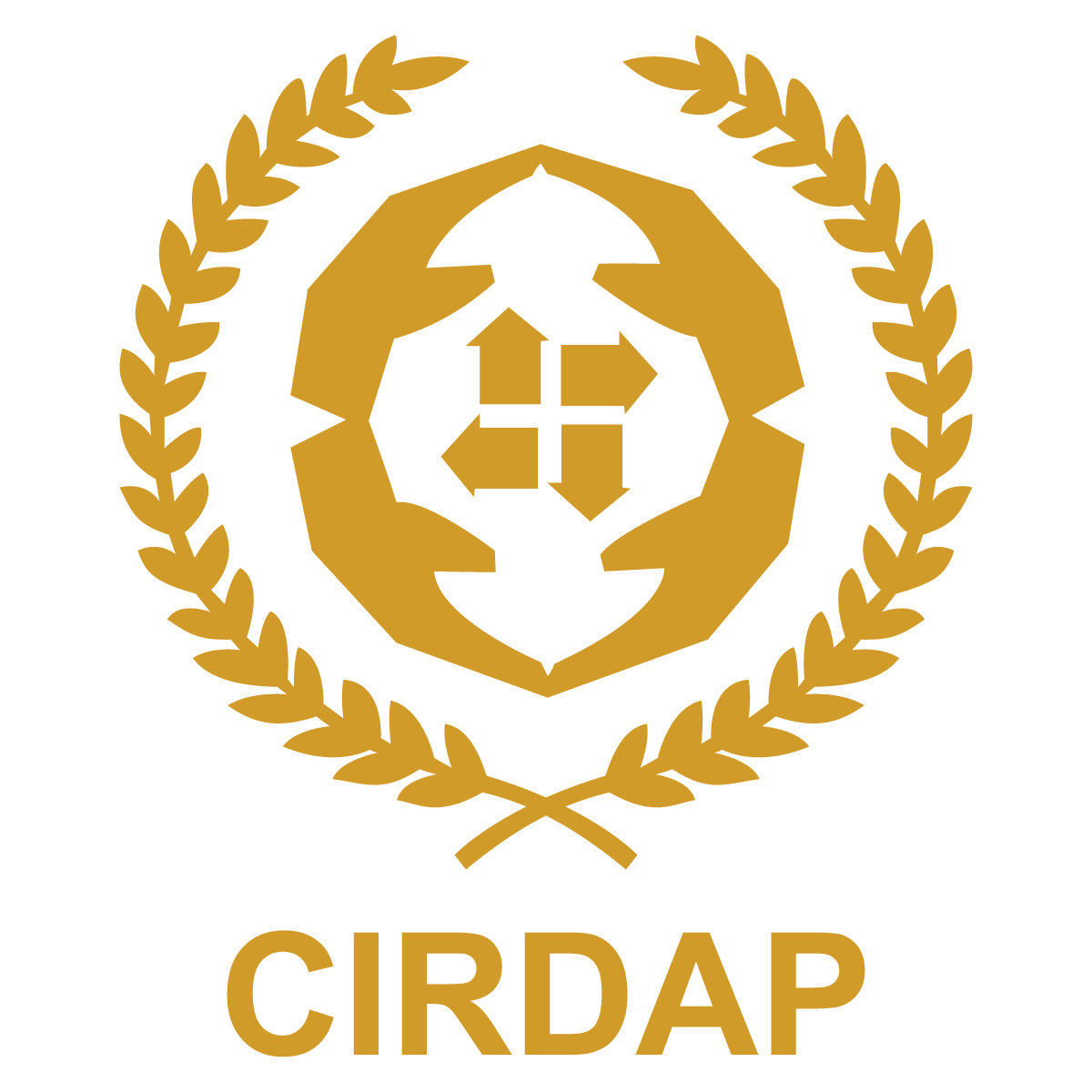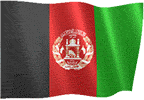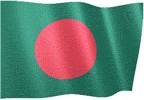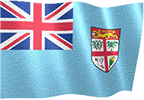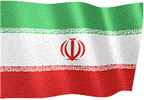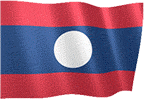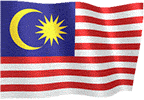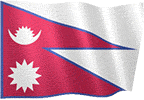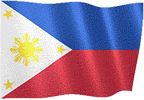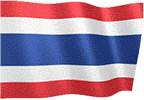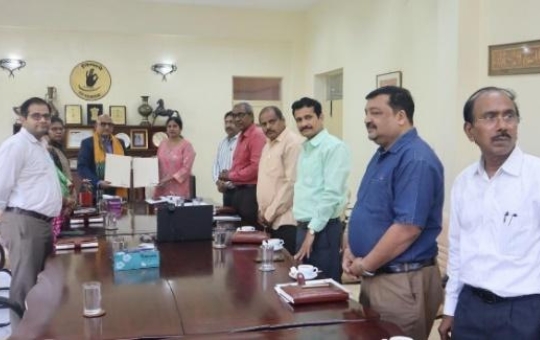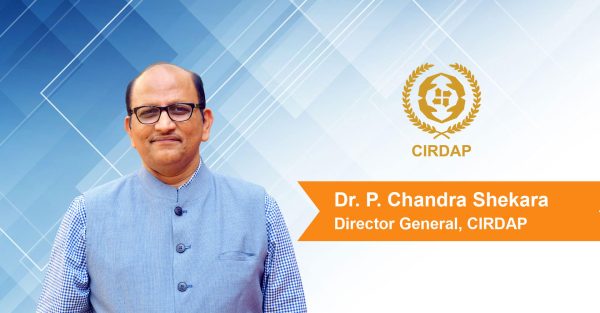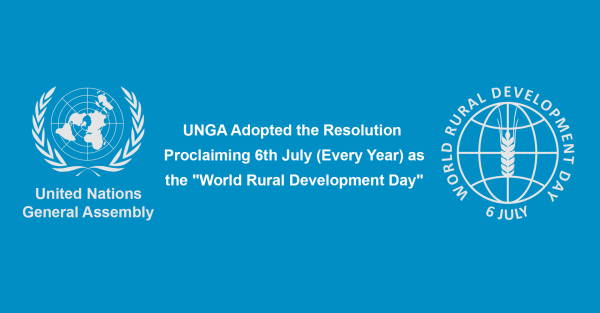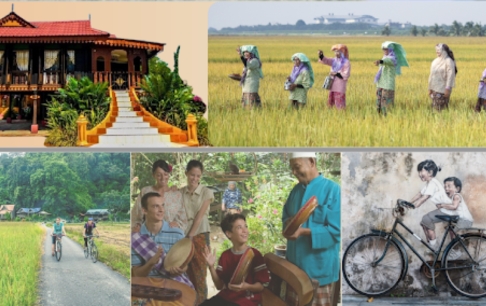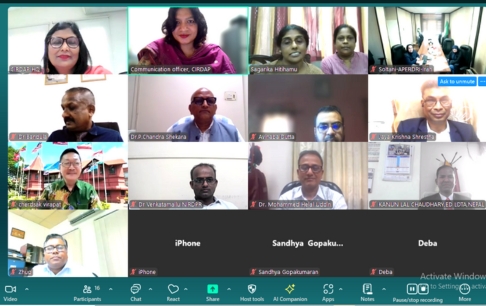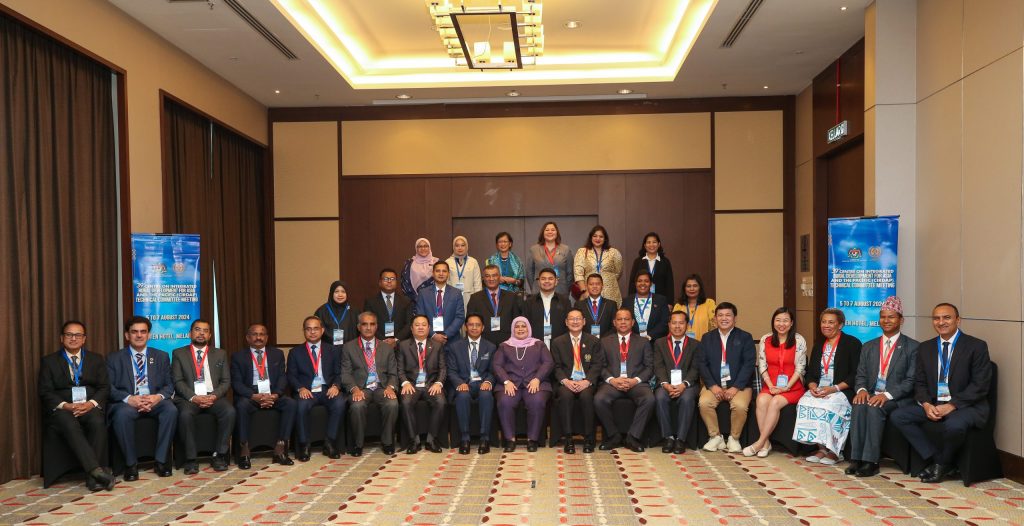CIRDAP and World Agriculture Forum, Zuidwolde, Netherlands signed a Memorandum of Understanding (MoU) for mutual cooperation in the presence of the global representatives during award ceremony of the 2ND World Agriculture Award ceremony, 2024 held on September18, 2024. The MoU was signed by Dr. Chandra Shekara, DG, CIRDAP and Ms. Leena Jacob, International Programs Director, WAF. The DG of CIRDAP took this initiative of forming a collaboration and cooperation to accelerate the integrated rural development leading to sustainable development thus leaving no one behind. DG CIRDAP attended the World Agriculture Award ceremony and the board meeting On September 18th, 2024, Dr. P. Chandra Shekara, Director General, CIRDAP delivered a talk in Norman Borlogue Colloquy on Global Food Security and Sustainable Development organized by the World Agriculture Forum during the Occasion of the 2ND World Agriculture Award ceremony, 2024 held at Mumbai, India. The World Agriculture Prize was presented to Honorable Chief Minister of Maharashtra state, India Sri. Eknath Shinde by World Agriculture Forum in this grand award ceremony. The DG of CIRDAP participated in the program as Board Member of the Forum. The vice president of World Agriculture Forum William Dar made the introductory speech in which he informed about the nature of the prize and method of selection for it. The national director of World Agriculture Council MJ Khan proposed the vote of thanks. The honour was done jointly by the Governor, HE Mr CP Radhakrishnan and WAF Chair, Prof Rabbinge, joined by Cabinet Ministers and Ambassadors and HCs of 9 countries, and 1100+ farmers and prominent leaders. Dr. Chandra, Director General also participated in World Agriculture Forum Governing Board Meeting as a board member on September 19th, 2024. The Forum has Global representatives from Netherland and all over the world. The World Agriculture Forum Board and its newly constituted Global Council met at the meeting. The meeting was attended by WAF Chair, Prof. Rudy Rabbinge; Vice Chair, Dr. William Dar; Board members: H.E. Mr. M Nardeosing, Secretary General, AARDO; Dr. Phat Cao, Board Chair, IRRI; among others, and online joined by Dr. Ameenah, former President, Mauritius; Dr. Hans Hoogeveen, Chairman, FAO Council; Mr. Richard Lackey, Chairman, World Food Bank among other members from 27 countries. The World Agriculture Forum (WAF) was envisioned during the Global Agriculture Summit in 2017 in New Delhi, India and later discussed at the World Food Summit in Des Moines, USA in 2019; as a neutral, global platform for nations, industries, experts, and institutions to converge, collaborate, and catalyze sustainable agricultural development, fostering a culture of innovation, inclusivity, and collective problem-solving. Following extensive and in-depth consultations with experts and global leaders, a consensus was reached to establish the World Agriculture Forum, modeled on the pattern of World Economic Forum, to address the pressing needs and opportunities in the agricultural sector.
